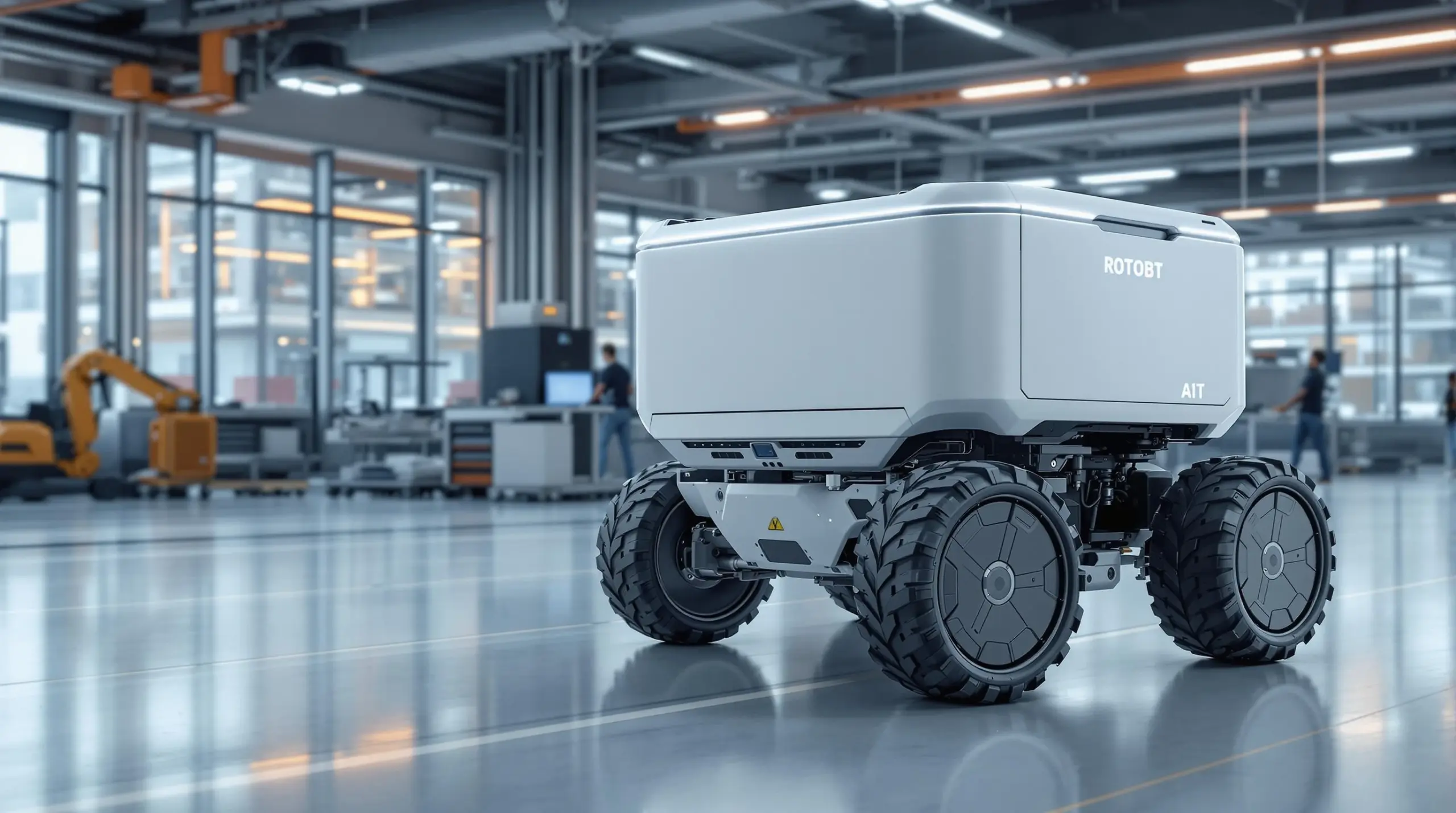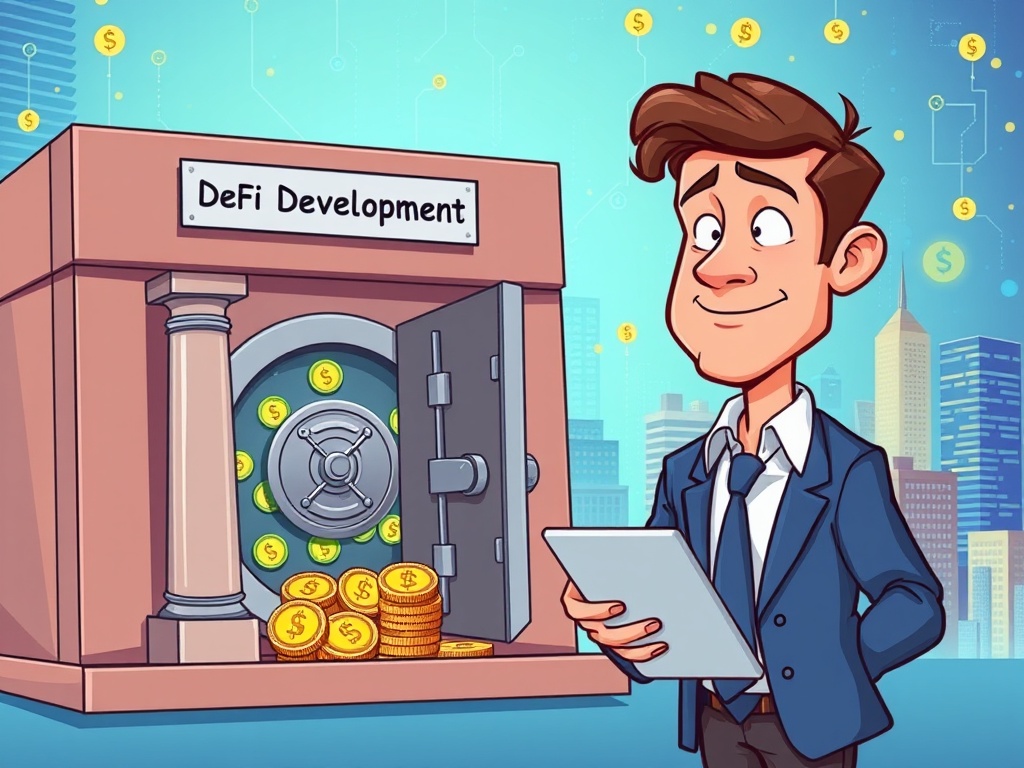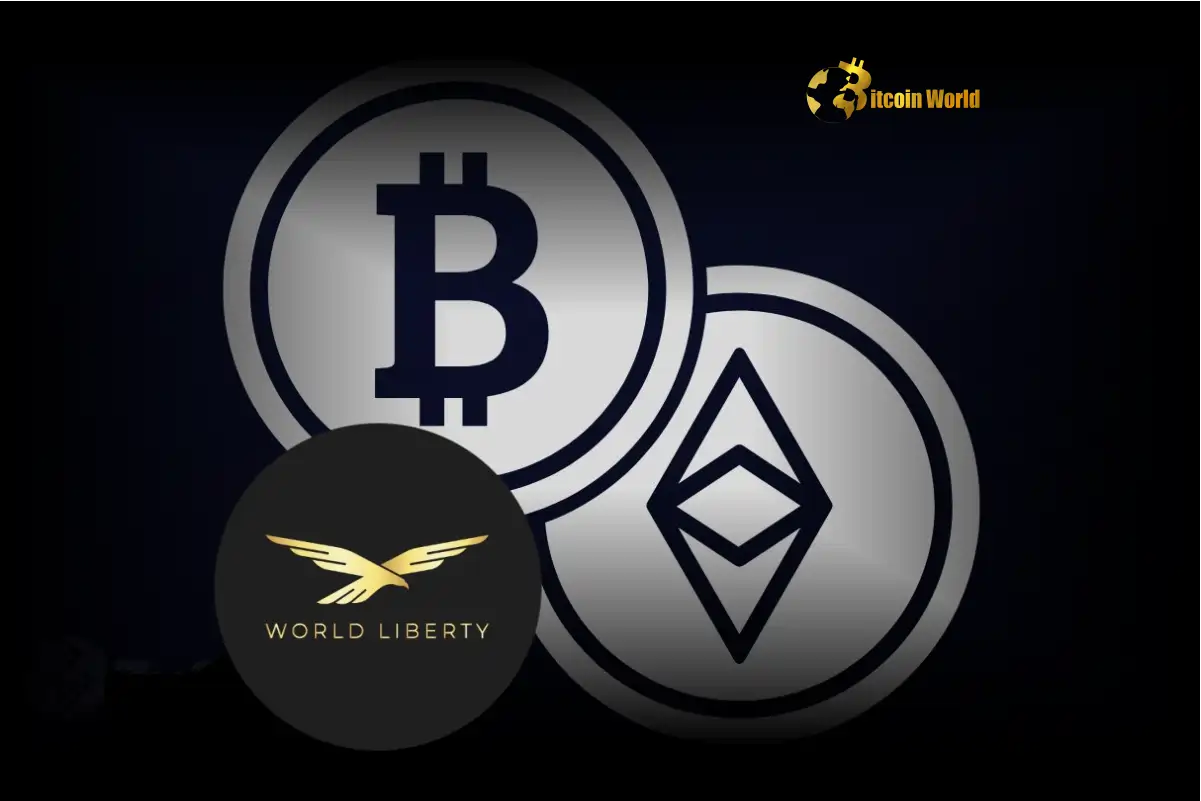BitcoinWorld

Industrial Robotics: Cartken’s Strategic Pivot Unlocks Astonishing Efficiency
In the rapidly evolving landscape of technology, where decentralized innovations like blockchain are reshaping industries, the physical world is also witnessing profound transformations. Autonomous robotics startup Cartken, initially known for its last-mile delivery robots, has made a strategic pivot that exemplifies adaptability and market responsiveness. This shift into industrial robotics isn’t just a business decision; it’s a testament to how versatile AI-powered systems can drive efficiency, mirroring the transformative potential we see in the digital asset space. From navigating bustling city streets with food deliveries to optimizing complex factory floors, Cartken’s journey offers a compelling narrative on identifying and capitalizing on critical market needs.
From Campus Deliveries to Industrial Robotics: Cartken’s Strategic Shift
Cartken, an autonomous robotics startup, initially gained recognition for its distinctive four-wheeled robots that facilitated food deliveries on bustling college campuses and across Tokyo’s vibrant streets. However, the company has now found a compelling new area of focus: industrial applications. Christian Bersch, Cartken’s co-founder and CEO, revealed that the idea of applying their delivery robots to industrial settings was always a consideration during the startup’s development. When companies began approaching Cartken about utilizing their robots in factories and laboratories, the team decided to investigate further.
“What we found is that actually there’s a real big need in industrial and onsite use cases,” Bersch stated. He, along with other former Google engineers behind the Bookbot project, co-founded Cartken. “Sometimes there have even been more direct value to companies optimizing their material flows or their production flows.” This unexpected yet significant demand signaled a promising direction for the company.
The Power of Autonomous Robots in New Frontiers
In 2023, Cartken secured its first major industrial client, the German manufacturing company ZF Lifetec. Initially, ZF Lifetec deployed Cartken’s existing delivery robots, known as the Cartken Courier. These robots, resembling an Igloo cooler on wheels, could carry up to 44 pounds. “Our food delivery robot started moving production samples around, and it’s quickly turned into our busiest robot of all,” Bersch explained. “That’s when we said, hey, there’s like real use cases and real market need behind it, and that’s when we started targeting that segment more and more.”
At that time, Cartken was still actively pursuing its sidewalk delivery business, including securing partnerships with industry giants like Uber Eats and GrubHub for last-mile delivery operations across U.S. college campuses and in Japan. However, the early success with ZF Lifetec encouraged the startup’s founders – Jake Stelman, Jonas Witt, and Anjali Naik – to strategically expand their business model. Interestingly, switching Cartken’s robots from food delivery to an industrial environment proved to be less challenging than anticipated. The advanced AI powering these autonomous robots was trained on years of diverse food delivery data, and the devices were inherently designed to traverse various terrains and withstand different weather conditions. This inherent versatility means the robots can seamlessly travel between indoor and outdoor settings. Furthermore, thanks to the extensive data collected from delivering food on the complex streets of Tokyo, the robots possess robust capabilities to react to and maneuver around obstacles with precision.
Leveraging AI Robotics for Enhanced Efficiency
Having raised over $20 million from venture firms such as 468 Capital, Incubate Fund, and Vela Partners, Cartken has strategically begun expanding its robotic fleet to align with its pivot towards industrial applications. Earlier this year, the company introduced the Cartken Hauler, a larger iteration of the Cartken Courier, capable of carrying a substantial 660 pounds. Additionally, Cartken launched the Cartken Runner, specifically engineered for indoor deliveries, and is actively developing a solution akin to a robotic forklift. This expansion showcases the scalability of their core technology.
“We have a navigation stack that is parameterizable for different robot sizes,” Bersch noted. “All the AI and machine learning and training that went into that is like transferring directly to the other robots.” This underlines the efficiency of their development process, where foundational AI learning from years of last-mile operations directly benefits their new industrial fleet. This strategic use of existing data and adaptable technology is a hallmark of effective AI robotics development.
Revolutionizing Factory Automation: A Blueprint for Success?
Cartken recently announced a significant deepening of its four-year relationship with Japanese automaker Mitsubishi. Mitsubishi initially played a crucial role in helping Cartken obtain the necessary certifications to operate their delivery robots on the streets of Tokyo. This collaboration has now expanded, with Melco Mobility Solutions, a company under the Mitsubishi umbrella, confirming its intent to purchase nearly 100 Cartken Hauler robots for deployment in various Japanese industrial facilities.
This partnership highlights the growing demand for Cartken’s solutions in diverse industrial environments. Bersch shared, “We’re definitely seeing a lot of traction across various industrial and corporate sites, from automotive companies to pharmaceutical to chemical.” He further elaborated on the universal problem Cartken aims to solve: “All these companies typically have people moving stuff from one building to another, whether it’s being by hand, on a cart, or a small forklift, and that is really what we’re targeting.” Cartken’s robots are poised to be a game-changer in factory automation, streamlining internal logistics and boosting productivity.
Streamlining Material Handling: A Game Changer for Industries
While Cartken’s primary focus has shifted, the company will continue its food and consumer last-mile delivery business. However, Bersch confirmed that this segment will not be expanded. Instead, these existing last-mile delivery routes will serve as crucial testing grounds for new capabilities and ongoing development of their robotic technology. This dual approach allows Cartken to continuously refine its AI and hardware in real-world, dynamic environments while aggressively pursuing the more lucrative industrial market.
The core value proposition for industries lies in optimizing material handling and production flows. By automating the movement of goods, samples, and components within factories, warehouses, and corporate campuses, Cartken’s robots offer direct, measurable benefits. This includes reducing labor costs, increasing operational speed, and enhancing overall efficiency. This strategic pivot positions Cartken as a pivotal player in the evolving landscape of industrial automation, promising substantial efficiency gains for businesses worldwide by addressing a fundamental need for streamlined logistics.
Cartken’s journey from a last-mile delivery startup to a leader in industrial robotics is a powerful illustration of innovation-driven adaptation. By recognizing a profound market need and leveraging their robust AI-powered autonomous robot technology, they’ve successfully transitioned to a sector ripe for automation. This pivot not only secures Cartken’s future but also provides a clear blueprint for how specialized robotics can unlock astonishing efficiency and redefine operational workflows across diverse industries. Their story highlights the immense potential when cutting-edge AI meets real-world industrial challenges.
To learn more about the latest AI market trends, explore our article on key developments shaping AI models features.
This post Industrial Robotics: Cartken’s Strategic Pivot Unlocks Astonishing Efficiency first appeared on BitcoinWorld and is written by Editorial Team





